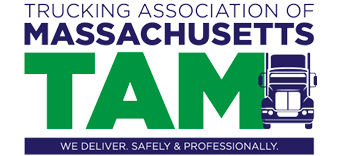Hours of Service suspension
The following information has been provided by the ATA regarding Hours of Service. TAM will continue to monitor information provided by all sources as this situation evolves, and will send as many updates as needed. Once the FMCSA issues the details on the proclamation itself we will be sure to forward it to you accordingly.
From the American Trucking Association…
Following President Trump’s address, we understand that FMCSA will be issuing an emergency proclamation suspending federal hours-of-service (HOS) regulations for operations engaged in emergency relief related to COVID-19.
We expect FMCSA to post the specific criteria of this proclamation on their website, including clarifying information about the types of loads and work covered. Motor carriers and drivers remain responsible for ensuring that drivers are receiving sufficient rest and are not operating fatigued. ATA will continue to monitor any emergency proclamations and will notify ATA membership as soon as they become available. For more information, please reach out to the ATA Safety Policy Team.
Additionally, Congress and the president are negotiating an initial emergency legislative package, which is scheduled to be taken up in the House soon, most likely today. ATA legislative staff are reviewing the current package and negotiations, and an update will be shared later today with a summary of that package. There is also discussion of future legislation that could be taken up as early as next week.
Areas like sick leave, small business assistance, food assistance and other areas are all under review. The situation is fluid and changing daily, if not hourly, but we are tracking your calls and input and tracking work by policymakers.
Emergency Declaration Information
To provide vital supplies and transportation services to a disaster area in the United States, emergency declarations may be issued by the President, Governors of States, or FMCSA. These declarations trigger the temporary suspension of certain Federal safety regulations, including Hours of Service, for motor carriers and drivers engaged in specific aspects of the emergency relief effort. See 49 CFR 390.23 for the actual emergency regulation.
Relief from Federal Motor Carrier Safety Regulations is limited to a maximum of 30 days, unless extended by FMCSA itself.
The information below reflects currently available relief:
- Drivers responding to provide “direct assistance” to an “emergency” meeting the definitions in 49 CFR 390.5 and declared by FMCSA or a governor, are exempt from applicable regulations in all States on their route to the emergency, even though those States may not be involved in the emergency or stated in the declaration of emergency.
- These exemptions, when in effect, only apply to 49 CFR Parts 390-399. They do NOT exempt drivers/carriers from the requirements relating to CDL, drug/alcohol, hazardous materials, size & weight, or State/Federal registration and tax requirements. (However, a Governor’s Declaration may add some of those exemptions – read the declaration for details.)
- Even if an Emergency Declaration is still in effect, the emergency must be on-going and you must be providing direct emergency assistance in order to be exempt from safety regulations.
- The list of Emergency Declarations below may not be complete. Declarations may be in effect even if not listed here. Read the declaration itself for all details.
- There is no requirement to carry a copy of the declaration in the vehicle unless stated so in the declaration itself.
- Drivers and carriers should coordinate with State emergency officials before providing assistance. State regulations regarding size and weight, permits, taxes, etc. may not have been waived.
- Even though safety regulations may be suspended, drivers and carriers are expected to use good judgment and not operate vehicles with fatigued or ill drivers, or under any conditions presenting a clear hazard to other motorists using the highways.



